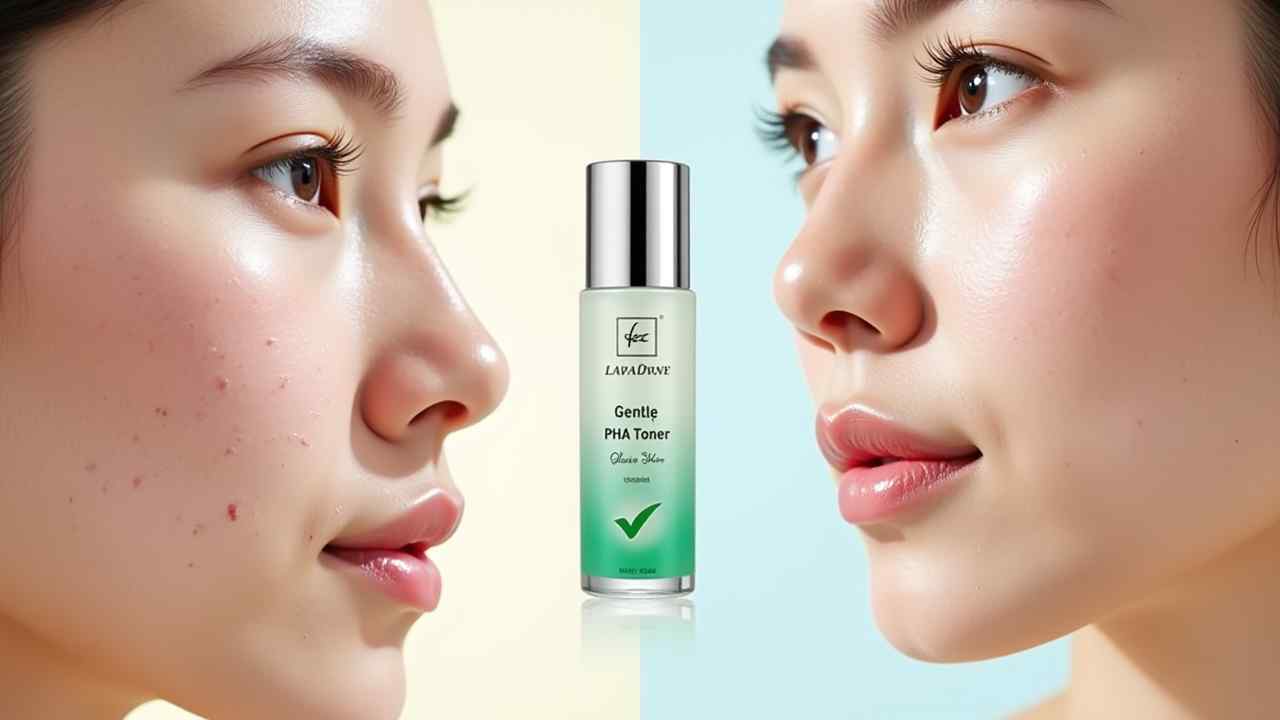
✨ The Ultimate Glass Skin Exfoliant (A Dermatologist's Guide)
✨ A Dermatologist's Guide to the Ultimate Glass Skin Exfoliant ✨
The term "glass skin" is a K-beauty ideal. It describes a complexion that is exceptionally smooth. The skin is so poreless, dewy, and luminous, it looks like a piece of glass. This coveted look is all about hydration and, most importantly, a perfectly smooth surface.
So, what is the secret to achieving this flawless texture? The answer lies in the right type of exfoliation. A smart glass skin exfoliant is the key to unlocking your most radiant complexion. This is a perfect goal for getting your glow on as the autumn air arrives here in Bursa. 🍂
This guide will explain which exfoliants to use. We will also cover which ones to avoid. Let's get you on the path to that crystal-clear glow. ✅
🤔 First, What Type of Exfoliant Should You AVOID?
The first rule of achieving glass skin is to be gentle. For this reason, you should avoid harsh physical scrubs. This includes products with large, jagged particles like crushed nut shells or fruit pits. These can cause microscopic tears in the skin's surface.
This kind of abrasion can lead to redness and irritation. It creates a rougher texture, not a smoother one. It works against the goal of a flawless, glass-like surface. Gentle exfoliation is the only way forward.
- What is the True Secret to a Smooth, Glass-Like Texture?
The secret to a perfect glass skin exfoliant is to use a gentle chemical exfoliant. Do not let the word "chemical" scare you. These are often derived from natural sources. They work by gently dissolving the "glue" that holds dead skin cells together. This reveals the fresh, new skin underneath without any scrubbing.
1. Why are PHAs the Gentlest Choice?
PHAs (Polyhydroxy Acids) are the gentle giants of the acid world. They are the perfect choice for sensitive skin. They have a larger molecule size. This means they cannot penetrate the skin as deeply. This results in very gentle, surface-level exfoliation. They also act as humectants, which means they hydrate the skin. This makes them a perfect glass skin exfoliant.
2. How does Lactic Acid help?
Lactic acid is an AHA (Alpha-Hydroxy Acid). It is known for being one of the gentler AHAs. Like PHAs, it also has hydrating properties. A low-concentration lactic acid serum is fantastic. It helps to smooth texture while also boosting your skin's moisture.
- How Do You Use an Exfoliant for Glass Skin?
A consistent and gentle routine is key. You do not want to overdo it. Here are the simple steps for success.
1. Start Slow: Begin by using your chemical exfoliant only two or three nights per week. See how your skin responds before increasing the frequency.
2. Focus on Hydration: This is crucial for the glass skin look. On the nights you exfoliate, follow up with a very hydrating serum. Look for ingredients like hyaluronic acid or snail mucin.
3. Moisturize Well: Always seal everything in with a good, simple moisturizer. This supports your skin barrier and locks in the hydration.
☀️ What is the Most Important Step of All?
You must wear sunscreen every single day. Exfoliating acids make your skin more sensitive to the sun. All your hard work to achieve a smooth texture will be undone by sun damage. Sunscreen is the most critical step for maintaining your glass skin results. Even the gentle autumn sun here is enough to cause damage. ✨